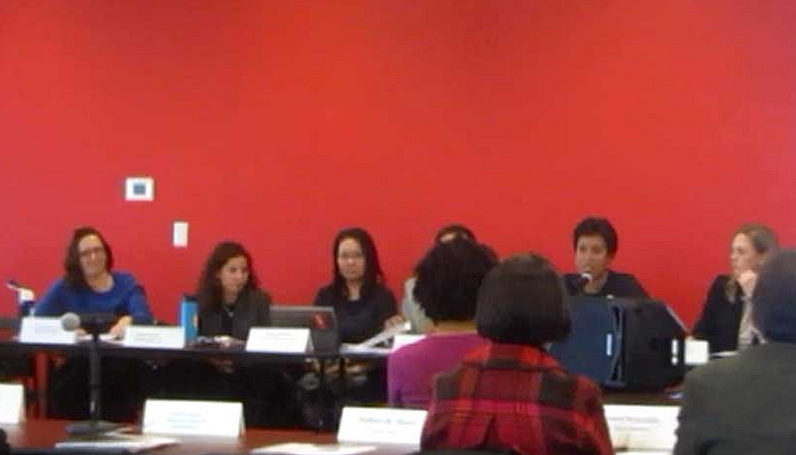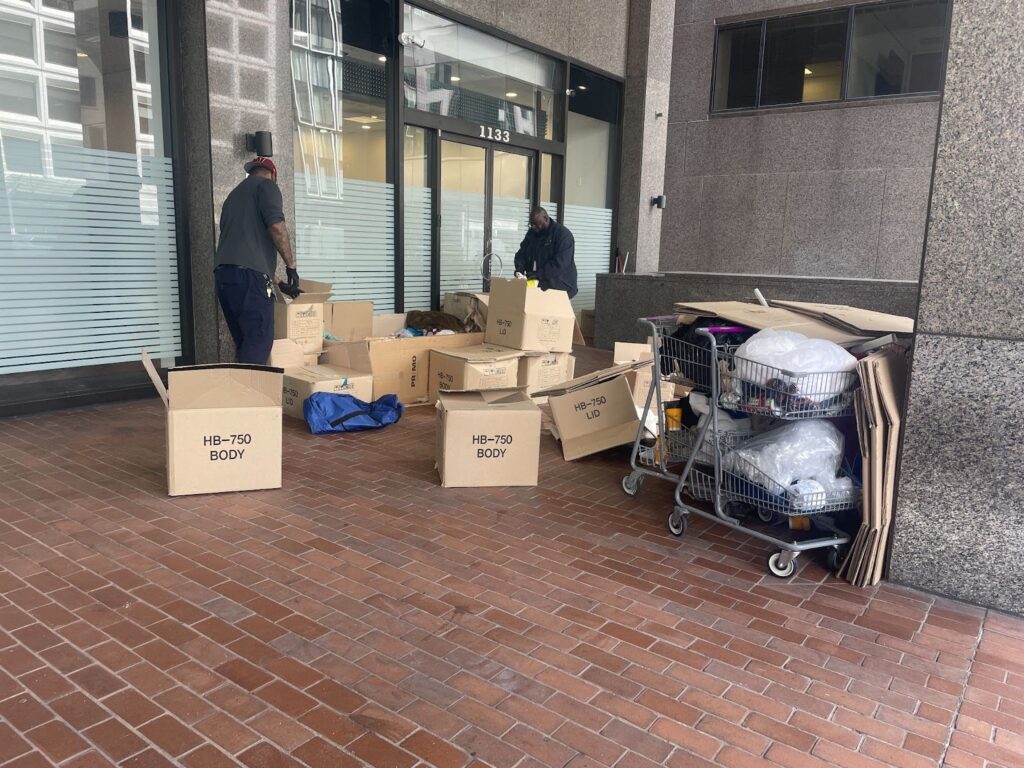The D.C. Interagency Council on Homelessness held its last meeting of 2017 on Dec. 12 to discuss employment and homelessness. The Department of Employment Services hosted the meeting and introduced the group to several DOES programs for potential employees.
At the meeting, DOES outlined a number of areas of focus that serve as challenges to employment: overlooked and untapped populations, economic disparity, opportunity, skills gaps, protecting workers’ rights, and financial security.
Officials pointed to several strategies for elevating some of these broader barriers. DOES is implementing transitional employment programs to combat the overlooked and untapped. The agency is using opportunity to learn and earn as a strategy to combat economic disparity, while using employer-driven training to close the opportunity and subsequent skills gap. DOES is looking for more inter-agency cooperation to support clients and help with barriers to employment, emphasizing protecting workers’ rights via labor-law enforcement and creating better support systems for injured and laid-off workers.
As it pertains to homelessness, the agency sees a need to better understand its scope, scale and impact on participants in DOES workforce-development programs. Accordingly, DOES has been working with the ICH and the Department of Human Services to improve its data capture within its programs. Another issue: Only 16.7 percent of single adults experiencing homelessness reported that they were employed in the 2017 point-in-time survey.
DOES says it has been sending its Workforce on Wheels van to the Adams Place Daytime Service Center and other targeted locations to connect residents to job-training programs. D.C. Career Connections reports 10 percent of its participants are homeless and 22 percent are experiencing housing insecurity. Meanwhile, DOES is partnering with Capital Area Asset Builders’ matched-savings programs, which allow participants to save money to use for housing. In addition, DOES is now launching single-adult transitional-housing pilot programs to help Project Empowerment participants, 25 percent of whom are homeless and 37 percent of whom are experiencing housing insecurity.
“If I need a place to stay and employment, I need to think about which one comes first,” said Charles Jones, the deputy director of the division of state initiatives. “It is our goal for people to start and three to six months later they have a home. People having a place to stay, we never tapped into that. It is our goal to help the most vulnerable.”
Residents like Michael Lee were not swayed by the agency’s optimism. “I’m one of the people under $15,000, $10,000, $5,000 a year,” he said. “It seems like every year 40 people die homeless. Americans should be first. American people need jobs. Homeless people need jobs. Poor people need jobs. It’s very sad.”
Advocate Robert Warren, director of the People for Fairness Coalition, pointed to one primary area where jobs for the homeless should be prioritized: in the public sector.
“I strongly believe every entity that is taking tax dollars should be hiring from the community,” Warren said.
During the main DOES-ICH meeting, Odie Donald II, the director of DOES, presented the agencies’ services and gave updates on progress within the homeless services system.
“We renovated several of our America’s Job Center locations,” Donald said, in addition to coming up with a customer bill of rights. “We just need to do a better job of informing people about what we know, so that we are all on the same team.
“We’re hoping the pilot [transitional-housing program] is highly successful. These opportunities are not homeless-specific. But they are accessible to homeless residents.”
The ICH also in-part discussed the intersection between employment and homelessness with DHS Director Laura Zeilinger, who was leading the dialogue. “We are finally seeing something different. We know that parents are more successful when their children are doing well,” Zeilinger said. “We try to make services accessible and also are going out to where people are.”
Toward the end of the meeting, the council was joined by Mayor Muriel Bowser.
Bowser gave thanks to her team — and expressed optimism about addressing homelessness with them going forward.
“We made it a priority three years ago,” she said. “I believe it’s a matter of time and political will.”








